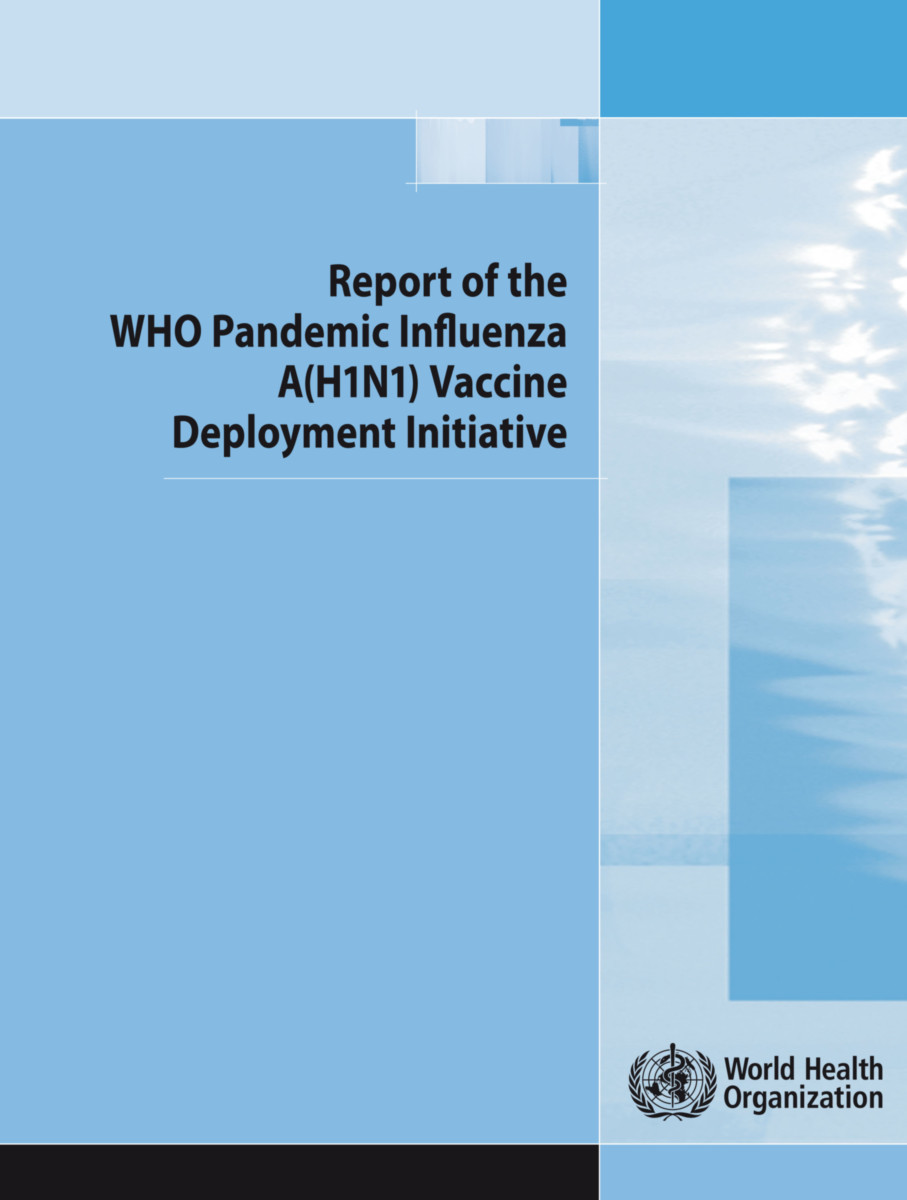Report of the WHO Pandemic Influenza A (H1N1) Vaccine Deployment Initiative
- Publisher
World Health Organization - Published
28th August 2012 - ISBN 9789241564427
- Language English
- Pages 48 pp.
- Size 8.25" x 11.75"
The established WHO Pandemic Influenza A(H1N1) Vaccine Deployment Initiative represented the first coordinated global response to an influenza pandemic. Between June 2009 and October 2010, WHO, other technical agencies, donor governments, nongovernmental organizations, and vaccine manufacturers and other private-sector stakeholders all worked together to deliver over 78 million doses of pandemic H1N1 vaccine and associated items such as syringes and safety boxes to 77 countries that would otherwise have had no access.
The success of this unique collaboration required considerable innovation and the coordination of a wide range of donation, transportation and deployment activities. During the course of implementation, a number of significant strengths in existing capacities and capabilities were highlighted. However, the collaboration also revealed areas where systems needed to be adjusted and efforts strengthened in advance of future events that could potentially require an even largerscale response.
Implementing the WHO Pandemic Influenza A(H1N1) Vaccine Deployment Initiative thus highlighted both the strengths and weaknesses in existing capacities and capabilities. This report of its key deployment and associated activities forms part of a broader WHO assessment and review process which is intended to document the lessons learnt and to strengthen the preparedness of the world for future public health emergencies.
World Health Organization
World Health Organization is a Specialized Agency of the United Nations, charged to act as the world's directing and coordinating authority on questions of human health. It is responsible for providing leadership on global health matters, shaping the health research agenda, setting norms and standards, articulating evidence-based policy options, providing technical support to countries, and monitoring and assessing health trends.


